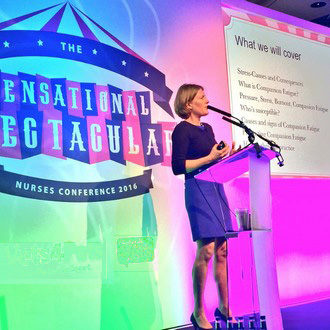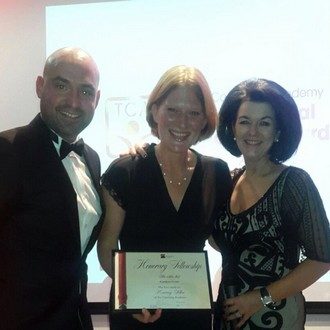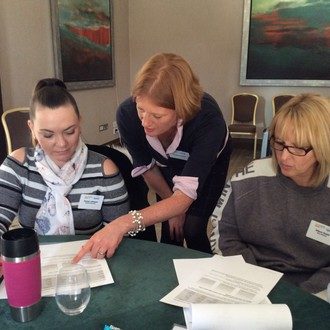I hope you agree that it’s in everyone’s interests to foster a genuinely supportive team spirit at work. We all know how much easier the working day is when you know that others have got your back, but if the emotional argument alone isn’t enough, the statisticians amongst you might like to know that 2016 Gallup research finds organisations with engaged employees outperform others by 147%. The same research concludes that providing people with the right tools, resources, and equipment is the most important thing you can do to keep them engaged and effective.
It’s obvious, but one of the best ways of finding out what your team members need is to ask them, but please only do this if you are committed to acting on their feedback – doing nothing will only increase their frustrations and leave them feeling unsupported.
They will be able to tell you immediately what’s working and what isn’t if you ask:
- What are your biggest frustrations at work?
- Do you have the physical tools that you need to do your job?
- Do you often have to call around or search online for key information?
- Can you easily contact other team members?
- Is the flow of information within the department or team effective?
- Are any parts of your working day or workflow processes inefficient?
- Have you had the training you need to do your work well?
- Would additional training improve your work, or make it more efficient?
- What causes you the most stress during the day?
You could ask colleagues to come along to the next team meeting with their answers or you could run a lunchtime session where everyone writes their responses on post-it notes and sticks them under the question headings. You could also ask for emailed responses or anonymous written feedback posted into a box in the staff room if this makes people feel more comfortable giving their honest thoughts. Where common themes are identified, they can be tackled as a priority. If somebody feels passionate about a particular topic, by all means ask them to take ownership of proposing solutions and keeping everyone aware of progress
Supporting your team effectively requires that you consistently:
- Listen. High achieving professionals need to feel that their boss really listens to them. People are more likely to be engaged if they work in an environment that encourages them to share their thoughts, opinions and feedback. Draw on their experiences and ideas to provide a fresh outlook or opinion on a situation. Be open to, and encourage feedback from, all staff and take action where required.
- Involve. Give real responsibility and accountability. Share financial data for the organisation for example and ask for ideas where savings can be made, customer value can be increased or where more efficient/effective policies can be applied.
- Value. Praise your staff and build their self-esteem by connecting thanks and praise to a specific action or accomplishment. Say thank you often and publicly, acknowledging where extra effort is made or where achievements have been particularly hard won. Rewarding ’employee of the month’ may seem a little cheesy to some of you, but such schemes do motivate people to go the extra mile. Ask clients to nominate members of the team in all roles for special recognition or nominate fellow colleagues for a more jokey award – the fact that the process is open to all and based on merit will help bring everyone together.
- Be empathic. Even if you don’t always give the answer they want, knowing you have listened and taken on board their concerns will go a long way in building rapport and respect.
- Support. Professionals want to feel fully supported by the organisation; they want to feel that an interest has been taken in their personal and professional development, that they are encouraged to grow and develop, and that they have a role and a future there.
- Motivate. Ensure that everyone has a live job description, featuring expectations of the role against which people are appraised annually (with a shorter, more informal performance review six monthly). These objectives should tie into the vision and mission of the organisation in order for everyone to truly feel that their efforts are making a genuine difference and building a stronger team united by a common goal.
Ultimately, support makes people feel happy and enthusiastic. Supported people are more productive, more engaged, and more likely to come up with new ideas. Their genuine commitment delivers a wide range of benefits for the organisation:
- Higher performance
- Increased productivity
- Lower absenteeism
- Reduced staff turnover
- Improved satisfaction
- Greater creativity and problem solving
Coming together is a beginning. Keeping together is progress. Working together is success.
Henry Ford
If you would like to take control of your life and career, my online personal development programme MyLifeStrategy can help you to overcome the personal and professional challenges you face on a daily basis and learn practical skills and techniques to make a real difference to you and your life.
I’ve developed the Understanding the People Puzzle module to help you to understand why people behave in the way they do, what’s behind your own and others’ behaviour, how to build positive relationships and get the best out of others and how to make the most of all your relationships.








